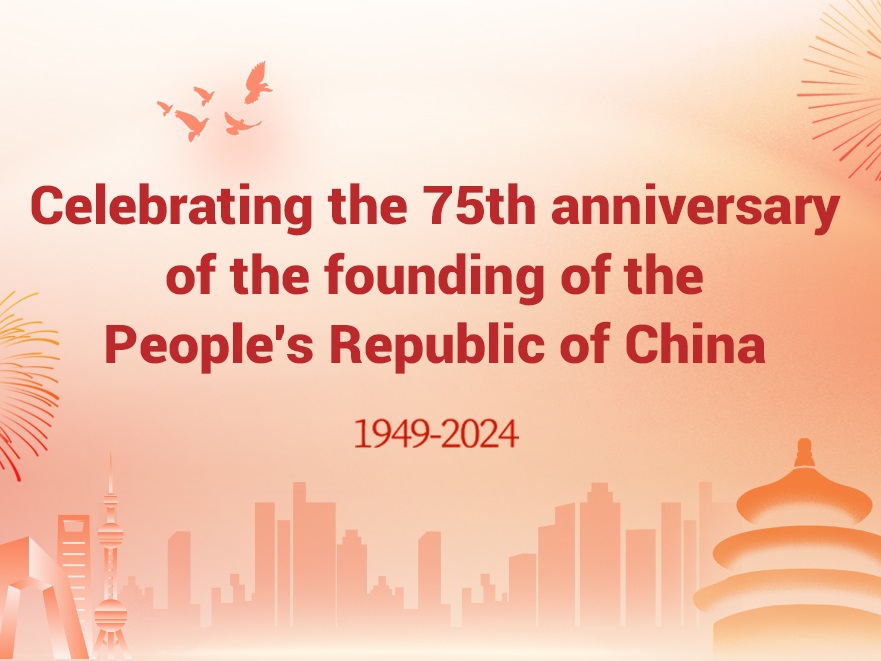China-ASEAN Expo adds momentum to economic development in post-pandemic era: Cambodian academics
The just-concluded 17th China-ASEAN Expo has added momentum to the region's economic development in the post-COVID-19 pandemic era, Cambodian academics said on Monday.
The four-day expo, which ended Monday in Nanning, south China's Guangxi Zhuang Autonomous Region, featured a "Belt and Road" exhibition area, online trade and investment promotion activities, as well as high-level dialogues to promote the greater participation of the Regional Comprehensive Economic Partnership (RCEP) members in the construction of the Belt and Road.
"This expo has accelerated the momentum of the current economic cooperation between China and ASEAN, and through it, trade and investment volumes between the two sides will grow bigger in the post-COVID-19 era," Joseph Matthews, senior professor at the BELTEI International University in Phnom Penh, told Xinhua.
ASEAN has become China's largest trading partner. In the first 10 months of this year, bilateral trade between China and ASEAN increased by 7 percent year-on-year to 3.79 trillion yuan (about 571.64 billion U.S. dollars), accounting for 14.6 percent of China's foreign trade, according to China's General Administration of Customs.
Matthews said the annual event truly demonstrated China's unfettered commitment to further opening up its economy and huge market for ASEAN and was an open message to the world that China is open for businesses.
"The expo also proves ASEAN-China's unwavering commitment to promoting a multilateral trading system," he said.
This year's expo also highlighted RCEP, the world's biggest trade pact, which was signed earlier this month.
Matthews said RCEP would take economic, cultural and political cooperation and partnership between ASEAN and China as well as four other countries to a higher level.
"This agreement is a victory for multilateralism and defeat of unilateralism," he said.
The professor said China-ASEAN cooperation and trade relationship under the auspices of RCEP is expected to grow rapidly, as ASEAN countries will have a greater access to the Chinese market with the population of 1.4 billion.
"China will remain a driving force for regional economies through digital connectivity and e-commerce," he said. "As China and ASEAN move toward the post-COVID-19 era, I believe that within one or two years from now, the economic and financial recovery under the RCEP will be swift and comprehensive."
Matthews said he has a strong conviction that ASEAN members such as Cambodia, Laos, Myanmar and Vietnam will greatly benefit from the RCEP pact.
"The developed and rich countries who are planning to export to China will heavily invest in these (above mentioned ASEAN) countries, so they will directly benefit from China and other developed countries in terms of high technologies, gadgets, automobiles, clean energy, and food processing industries among others," he said.
"Under the RCEP, all sides will gain something, which is a win-win free trade agreement of its own kind in the world, undoubtedly," he added.
Chheang Vannarith, president of the Phnom Penh-based Asian Vision Institute, said it is important to build synergy between RCEP and other regional initiatives such as the Belt and Road Initiative (BRI).
"The BRI has been playing a crucial role in strengthening regional infrastructure development and connectivity, which are the key elements to support trade and to attract investment," he told Xinhua.
Vannarith said the expo was an important platform for economic exchanges and strengthening, diversifying and expanding economic relationships under the auspices of China-ASEAN free trade agreement, which is the catalyst of regional trade and investment cooperation.
"Deepening ASEAN-China economic cooperation contributes to regional economic recovery and the enhancement of open, inclusive and rules-based multilateral system," he said. "Cambodia and China share the same world view on promoting multilateralism as the basis for peace, security and prosperity."
ASEAN (the Association of Southeast Asian Nations) groups Brunei, Cambodia, Indonesia, Laos, Malaysia, Myanmar, the Philippines, Singapore, Thailand and Vietnam.


